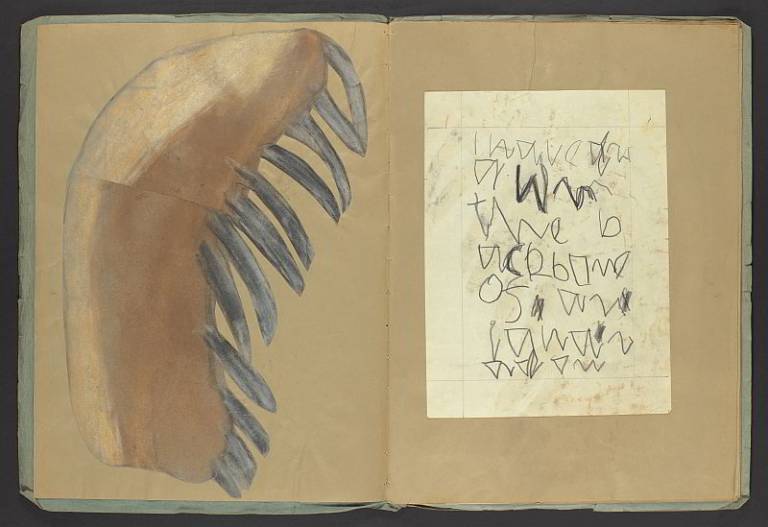Anthony Davis Book Collecting Prize: Interview with LSE Library
By Ching Laam Mok, on 24 May 2023
At UCL Special Collections, we look after collections that, as a whole, tell a larger story about our shared history and culture. Some items may have a high monetary value, but many like the 1970s workbooks preserved in our Baines Archive, collectively help us understand the history of education.

‘Book of Bones’ from our Baines Archive.
Preserving history doesn’t depend on past collectors. Student Book Collectors play an important role in capturing a snapshot of history. Collections like the 2020 winner “Books that Built a Zoo” allow us to understand the intersection between children’s literature and animal conservation. “Read my Genders: A Trans for Trans Collection” captures the voices of modern-day transgender writers and advocates.
But you don’t just have to take our word for it. Chelsea Collison, Learning and Engagement Officer at LSE Library, has written about her favourite collection and how it helps her better understand history.
Tell us a bit about yourself!
I’m the Learning and Engagement Officer at the London School of Economics Library where I work closely with the curators to tell the stories of the collections to a wider audience. I do this via workshops schools and public events for university students and beyond. I specialise in using learning outside of the classroom to increase public awareness, appreciation, and curiosity for heritage, history, and nature.
Outside of work, I enjoy exploring the outdoors whether in the urban parks within London or further afield during travels outside the city. Growing up in Florida, I spent my formative years playing in the waves on the eastern coast, hiking through swamps and tree canopies, or paddling around the crystal blue springs. These memories along with an early job as an educator at a natural history museum have developed a deep feeling of awe and wonder for nature in all its forms.

Chelsea Collison, Learning and Engagement Officer at LSE Library is looking at collection items.
If you were applying for the Anthony Davis Book Collection, what would you submit?
If I were applying for the Anthony Davis Book Collection the theme would be women in natural history. In what has historically been a male dominated field, it’s important to learn about the women who have contributed to biodiversity sciences despite the many social and cultural barriers they were up against. Examples includes works by Mary Anning, Rachel Carson, and Maria Sibylla Merian (to name just a few!). I have a particular interest in scientific illustration as I’m always impressed by the level of observation skills and detail required for creating something that is scientifically accurate and not just pretty. Of course, I also enjoy these works because they are also beautiful and serve as inspiration for my own artwork! Although natural history is not something that is a specialty for LSE, there are still some gems on this topic to be found within The Women’s Library collections! Some other examples can be found on the Biodiversity Heritage Library Flickr page.

Chelsea would submit a collection of women in natural history if she was applying for the book collecting prize.
How do you choose what to add to your collection?
I would want to build a collection that would represent a wide range of ecological biodiversity within the books and illustrations (botany, mycology, entomology, etc.) but also a diversity of the women represented. I would place special interest in books that highlight geographical areas that are special to me including Florida, and now England, which have both experienced high levels of environmental degradation meaning many of species represented in older books and illustrations may now be extinct.

One of the items Chelsea picked.
What does this collection mean to you?
To me, this collection would tell two hidden stories, one of people and one of place. The story of people would highlight the often forgotten or unknown women of science and their important contributions to the field. The story of place would highlight impacts of environmental degradation and climate change by showcasing illustrations of species that no longer exist in these places we have come to call home.
Thank you very much to Chelsea for talking to us! If you’d like to learn more about LSE’s Library collection, visit their website.
If you have a collection of books, postcards, leaflets or other print items that tells an important story to you or a subject your passionate about, consider applying for the Anthony Davis Book Prize! Details of how to apply, and more examples of other books collections, are available on our blog.
 Close
Close


